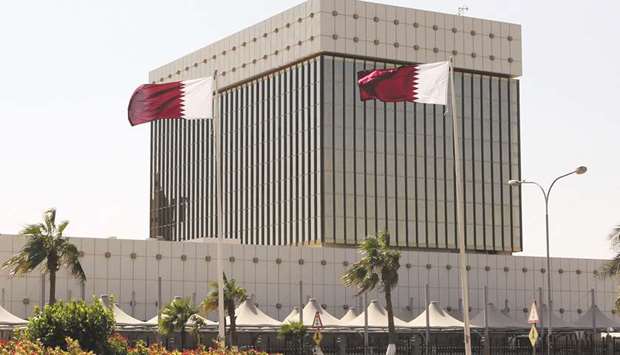Reserves at the Qatar Central Banks “remains high” although annual average oil prices are forecast to fall in 2019, Economist Intelligence Unit (EIU) has said in an overview.
The QCB reserves will take care of the country’s repayment obligations, the EIU noted.
According to the EIU, the "threat of capital outflows in the wake of the regional blockade has largely subsided" with the recovery and subsequent stabilisation of foreign reserves and the return to a current-account surplus in 2018.
“This will be maintained, albeit at a lower level in 2019 20,” the EIU said. Moreover, reserves at the Qatar Investment Authority (QIA), the sovereign wealth fund, provide strong underlying support for the maintenance of the currency peg to the dollar, it noted.
In its risk rating of the Qatari banks, the EIU said, “It has improved by 1 point. It is underpinned by strong liquidity positions. Commercial banks have been ramping up liquidity from abroad in the form of a number of recent debt issues, while cash injections from the QIA have further bolstered their liquidity.”
The EIU maintains the view that economic diversification projects will sustain robust growth until 2030, before slowing thereafter. There remains potential for bursts of high growth if further gas export projects, beyond those planned for the mid-2020s, are approved by the government.
Diversification and the expansion of the services sector, funded by the State's hydrocarbons wealth, will also provide opportunities for growth. The population will continue to increase, largely through immigration, to 3.8mn in 2050.
In the region, Qatar enjoys one of the highest rankings in view of the country’s policies towards foreign investment and private enterprise and competition.
Qatar's overall business environment score calculated by the EIU has improved, rising from 6.76 for the historical period (2013-17) to 6.86 for the forecast period (2018-22).
However, improvements in other countries mean that Qatar's global ranking slips from 32nd to 35th, although the country’s regional ranking “remains steady” at third, it said.
The biggest improvements, in terms of points, are in policy towards foreign investment (up by 0.9 points to 7.8) and in policy towards private enterprise and competition (up by 0.7 points to 5.5), EIU noted.


